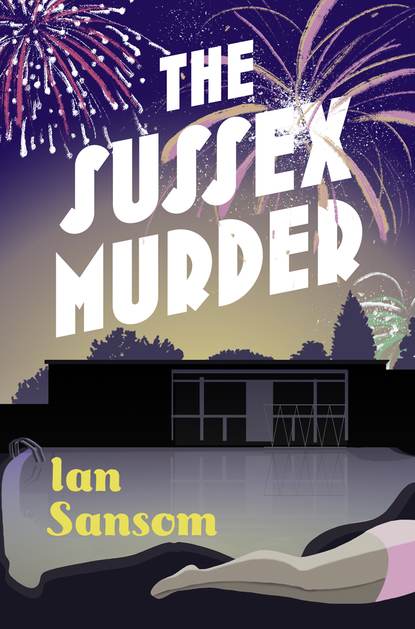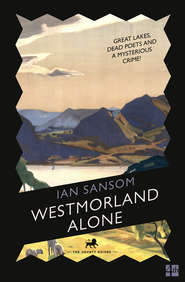По всем вопросам обращайтесь на: info@litportal.ru
(©) 2003-2024.
✖
Flaming Sussex
Автор
Год написания книги
2019
Настройки чтения
Размер шрифта
Высота строк
Поля
At this point, an almost total silence had descended upon the café, as more of the customers recognised Miriam’s defining and indeed dominating presence among us.
‘Miriam,’ I said, lowering my voice, ‘I’m afraid I’m going to have to resign.’
She did not respond.
‘Did you hear me, Miriam?’
She blew smoke from her nostrils – a trick that she performed when alarmed, cornered, frustrated or otherwise excited. Out of the corner of my eye I could see a man making pies: chopping up eels, making mash, concocting parsley sauce.
‘I’m leaving,’ I said.
She laughed. It was not a pleasant laugh.
‘Leave?’ she said, fixing me with a stare. ‘You can’t leave, Sefton.’
Miriam couldn’t leave: Morley was her father. But I could.
‘I wonder if you might give this to your father,’ I said quietly, handing her my resignation letter.
‘This?’ said Miriam with distaste, fingering my note written on the Skulnik receipt.
‘It’s my resignation,’ I said.
‘Hmm,’ said Miriam. She held the letter in her hand, regarded it from a distance, without reading it, and then, with clear regard for the audience in the café that was now watching her every move, took her cigarette and used it to set fire to the little piece of paper, which flared, blackened, and which she placed carefully in the ashtray on the table. ‘Oh dear,’ she said. ‘Sorry.’ She fixed her gaze upon me.
The café owner at that moment approached our table.
‘Everything all right here?’ he asked.
‘Everything’s fine, thank you,’ said Miriam, flashing him a smile. ‘That will be all, thank you.’
The owner walked away, but looked back at me over his shoulder as he went, raising his eyebrows and widening his eyes, as if to say, ‘I thought you were onto a winner there, but good luck with that, mate.’ It was not an uncommon response to Miriam’s provoking and unpredictable presence.
‘You know I can just write another resignation letter, Miriam?’ I said.
‘You could, Sefton. But you won’t.’
‘Why not?’
‘Because whatever reason you may have had for offering your resignation, having now heard that Father is in danger, you won’t even consider resigning.’
‘Will I not? Why not?’
‘Because,’ she said, pausing for effect, ‘you are a good man, Sefton.’
‘I am far from that, Miriam,’ I said.
‘Well … If you say so. But if not because you’re good, then because we need you, Sefton.’ She placed her hand over mine, bit her lip, and looked away, as though overcoming silent tears. ‘I need you.’ This was another of her techniques: the pause, the hand, the lip, the look. I’d seen it all before. ‘To be honest, I had rather hoped to be spending the autumn in Florence – there’s no crush on the Cascine at this time of year and the faded light is quite magical.’
‘I’m sure it is,’ I said.
‘I promise you, Sefton,’ she continued, ‘that this will be your final outing. If you could just help me prevent this dreadful woman from getting her claws into Father, we’ll do Sussex, and then you can pop off and do whatever it is you want to do with Mr Mann and his dreadful schemes or whatever. And I can go off to Florence or somewhere. There we are. How’s that?’ She put out her hand for me to shake and seal the deal.
‘I’ll think about it, Miriam,’ I said.
‘Well, don’t think about it for too long, darling.’ With which she left, though not before I had to call her back in order to pay the bill, since I had no money.
‘You can pay me back when we go to Sussex together,’ she said, as she left the café.
‘Rock and a hard place, mate,’ said the café owner, as the door banged behind Miriam.
‘Indeed,’ I said.
I walked outside.
It was almost one o’clock. At precisely one o’clock the East End Sunday markets are supposed to close. At one o’clock, the market inspectors arrive and the traders and stallholders must pack up and leave; there is no more buying and selling to be done. And so at around ten to one there is a frenzy of final deals. This is the moment when ‘pedigree’ dogs change hands for pennies, when kittens are bagged up in job lots and when birds are offered, three for a tanner. Amid this chaos of buying, selling and bartering, on the other side of the road, I spotted a figure hurrying towards me.
It was the Limehouse chap.
Already exhausted from the conversation with Willy and Miriam, for a moment I almost thought it might be easier just to give up and abandon myself to my fate.
Then I decided to run.
And it was at that very moment that a large dog – a slavering boxer – a truly formidable-looking creature, quite enormous in size, broke free from its owner and came bounding towards me. Instinctively I stepped back, up against the window of the pie and mash shop. Without making a sound the dog reared up on its hind legs and placed its front paws squarely on my shoulders. Standing erect, the beast was as tall as me: we were face to muzzle.
I was trapped.
Which was when the Limehouse chap made his fatal mistake. Pushing through the crowd, he reached me just as the dog had settled its paws on my shoulders – and proceeded to grab the creature by its collar so that he could get at me.
The dog, believing that he was about to lose his new plaything, turned towards the Limehouse chap, gave a savage bark and butted him under the chin with his head. As I turned and began to slip away, the dog turned back towards me and the Limehouse chap found himself being pulled forward as he held on to the dog’s collar, putting his other hand out in an attempt to steady himself. His fist went straight through the plate-glass window of the café. There was a crash, the man gave a blood-curdling cry, the like of which I had never heard before, and the dog, startled and disturbed, reared up under him, propelling him through the broken window.
My last look, glancing behind me, dodging among the crowds and animals of the market, was the sight of the marble floor of the shop turning a bright crimson.
Someone was screaming ‘He’s dead!’ Whether it was the dog or the Limehouse chap I did not wait to find out.
CHAPTER 8 (#ulink_f8ee131e-9578-5cb0-8846-773cecb772af)
‘SEFTON! What took you so long?’ asked Miriam. ‘Come on. Come on in.’
As Miriam ushered me into her apartment, an elderly, most striking-looking dark-haired woman, wearing an array of brightly coloured beads that may have been Mexican, and carrying a stout wicker shopping basket that was most definitely English, hurried past in the corridor.
‘Well,’ she said, in what sounded to me like a French accent but may indeed have been Mexican, but which certainly was not English, ‘you kept this one quiet, Miriam.’
‘Finders, keepers, Ines,’ said Miriam. ‘Finders, keepers. Far too young for you anyway.’
‘They’re never too young, my dear. It’s just me that gets too old.’
‘Hello?’ I said.











